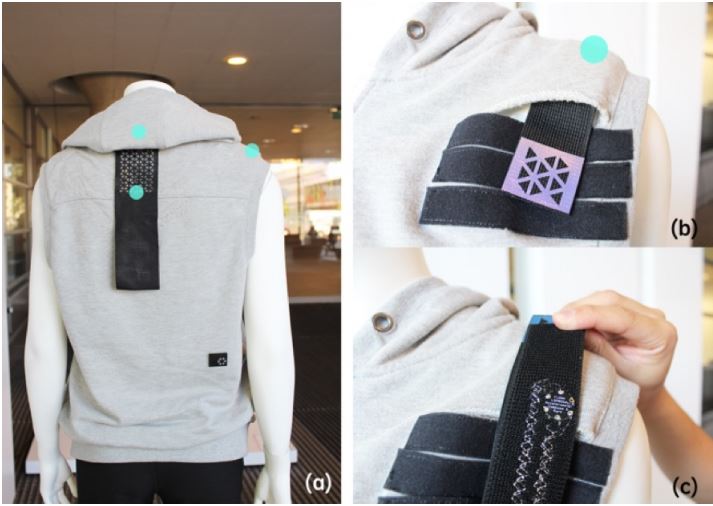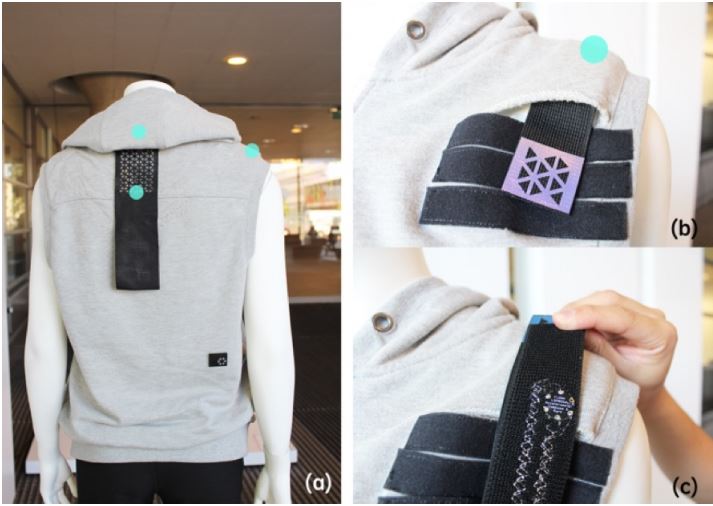
The objective is to evaluate to which extent that Zishi a garment equipped with sensors that can support posture monitoring can be used in upper extremity rehabilitation training of stroke patients. Seventeen stroke survivors (mean age: 55 years old, SD =13.5) were recruited in three hospitals in Shanghai. Patients performed 4 tasks (analytical shoulder flexion, functional shoulder flexion placing a cooking pot, analytical flexion in the scapular plane, and functional flexion in the scapular plane placing a bottle of water) with guided feedback on a tablet that was provided through inertial sensors embedded in the Zishi system at the scapula and the thoracic spine region. After performing the training tasks, patients completed four questionnaires for assessing their motivation, their acceptance of the system, its credibility, and usability. The study participants were highly motivated to train with Zishi and the system was rated high usability, while the subjects had moderate confidence with technology supported training in comparison with the training with therapists. The patients respond positively to using Zishi to support rehabilitation training in a clinical setting. Further developments need to address more on engaging and adaptive feedback. This paper paves the way for larger scale effectiveness studies.

